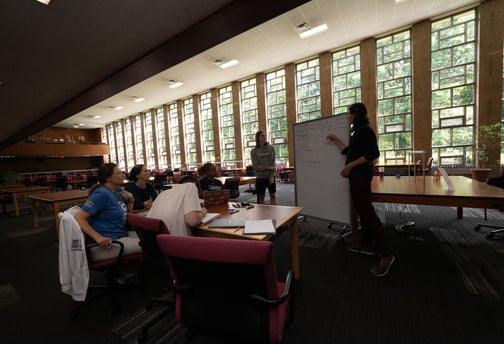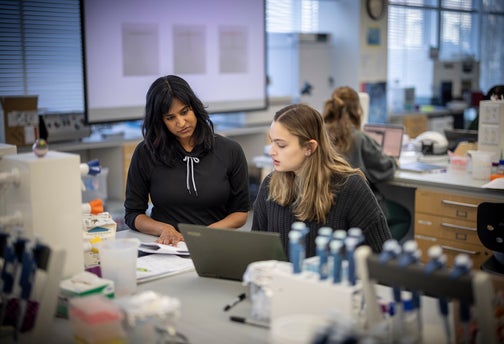The psychology department’s Learning Goals are based in the Principles for Quality Undergraduate Psychology Programs, a report put out by the American Psychological Association, which “recognizes the importance of undergraduate education in advancing psychology as a science, promoting human welfare, and fostering students’ growth and development,” (APA.org). Each goal is broadly articulated, with the recognition that the content, depth, and breadth of the course are dependent upon a number of factors (e.g., 1000–4000-level).
- Knowledge and Critical Engagement in Psychology: Students will understand and can apply the major concepts, theoretical perspectives (biological, behavioral, cognitive, developmental, and social), empirical findings, and historical trends in psychology, as well as the APA Code of Ethics.
- Research Methods in Psychology: Students will be able to engage in research design, sampling, data collection, data analysis and interpretation.
- Information and Technological Literacy: Students will be proficient in the use of information and technology for many purposes relevant to the field of Psychology.
- Communication Skills: Students will be proficient in written and oral communication in a variety of formats for educational and professional purposes.
- Personal and Professional Development: Students will understand the links between personal and professional values, knowledge and skills, and aca- demic and career goals.
To further articulate how each goal is addressed within the Psychology program course structure, Student Learning Outcomes (SLOs) are articulated for each course that is part of the major and minor. Bloom’s taxonomy was used as a framework for distinguishing the level of skill or knowledge expected within the given course. These levels are: Remembering, Understanding, Applying, Analyzing, Evaluating and Creating. The student learning outcomes reflect both the Psychology program goals and the level of learning expected for each goal. The departmental goals and course-specific student learning outcomes are included in all course syllabi.


